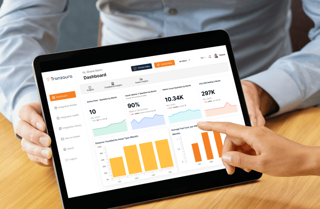Driver training can improve safety and cut accidents, but fleets have also found it useful in cutting costs during the recession.
Where budgetary constraints have put the brakes on changing fleet vehicles for newer, more efficient models, driver training has helped bring down fuel bills.
Many companies represented at the Fleet News Round Table had witnessed cuts in fuel bills as well as reduced accident rates and improved safety.
Graham Telfer, fleet manager for Gateshead Council, says: “We have IAM training for drivers. Accident rates have dropped by at least 30% and there has been a comprehensive saving in fuel costs.
“Drivers have also been saying they have achieved better fuel economy in their own private mileage since going through training.”
Chris Pascall, of EDF Energy, also found improvements through training.
“We launched a ‘back-to-basics’ driver training programme,” he says. “And recorded improvements in efficiency as well as safety.”
Pascall says the EDF fleet took action to reduce average CO2 emissions when the chance of London’s Congestion Charge being switched to a CO2-based system was first mooted.
A five-year programme was introduced to target a reduction in emissions by 20% by 2012, although he says it has been tough to try to achieve it.
EDF Energy has achieved some of its savings by focusing on what needed to be carried in some of its light commercial vehicles.
A reduction in payload allowed the company to downsize into more efficient vehicles.
Pascall says: “We analysed what was being carried in the vans, and changed the racking, which allowed us to reduce payloads from 800kg to 600kg.
"This allowed us to switch from Peugeot Partner to Bipper vans, which has resulted in an 18% reduction in CO2.”
Fleet operators have also seen some success in persuading staff with private cars to choose more efficiently or take greater care to establish whether using their own car is necessary.
Gareth Roberts, fleet manager for the Countryside Council for Wales, says: “We had about 200 drivers in our grey fleet.
“We reduced the mileage rate to 25p per mile for business mileage.
"Staff can increase this to 40p by claiming the difference from HMRC, but many see it as an extra layer of bureaucracy.
“We set minimum standards for safety and CO2 for grey fleet use. Average CO2 per vehicle will be 108g/km by April 8.”
He also says alternative options such as public transport and hire cars have been used more widely and that there has been positive feedback from staff.
Damian James, of Bracknell Forest Borough Council, says: “We had a programme to try to reduce the number of essential users in our organisation.
“We moved about 300 essential users out of that category and set clear standards about the number of journeys being made each week.
Safety remains a high priority and fleets continue to use training and risk management services to help maintain driving standards.
Maurice Elford, group fleet manager at RBS, says: “Peak Performance provides our fleet risk management.
“All drivers go through an on-line risk assessment every three years, with medium-risk drivers attending a half-day driver safety workshop and high-risk drivers undergoing an individually tailored half-day in-car training session.
“It has been six months since we introduced the programme and to date we’ve successfully put 5,500 people through the process.”
Mark Johnson, fleet manager of Rentokil, says the company has passed on charges for damage to drivers in a bid to ensure they take more care with company vans.
Gary Black, fleet manager of Inspired Gaming, says challenges caused by the recession had been accepted by drivers.
“It has been difficult to introduce anything that has cost associated with it” he says.
“We have had to reduce the size of the fleet and extend the leasing life of vehicles. We now run vehicles to five years old.”
Company merger leads to review of fleet
Sarah Hall oversaw the merging of two fleet operations at Alliance Boots, which offered the chance to conduct a fundamental review.
She says: “Our two merged companies had different fleet operations, so we started a fleet review as a basis for developing a new policy.
“We reduced the number of manufacturers on the fleet to three and run cars for four years.
"We had eight manufacturers or brands on the fleet originally. When we changed to a four-year cycle, people were reasonable and it wasn’t difficult to win over hearts and minds.
“When selecting the brands for the fleet, we wanted those with cars across all grades with good figures for cost of ownership.”
For all the latest advice and information on fleet management, have a read of our fleet operations section.


















Login to comment
Comments
No comments have been made yet.